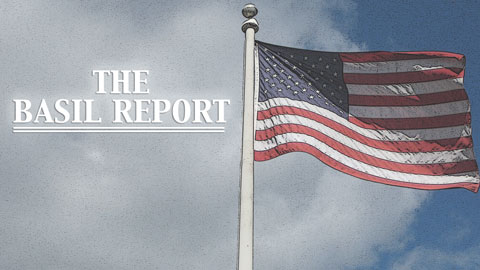Two events from the past three weeks have pushed the immigration debate off of the Washington backburner to the front of the national stage.
First came the news from Arizona, where the state legislature passed and Governor Jan Brewer signed a strongly anti-immigrant law. The law, which is meant to crack down on illegal immigration, instead effectively mandates racial profiling and racism, raising the question of the law’s constitutionality.
The same week, Republican Senator Lindsay Graham backed off his endorsement of a climate bill that was weaving its way through the Senate after majority leader Harry Reid decided to schedule immigration reform before a climate change bill, for election year reasons.
Immigration reform is badly needed; the continuing existence of 10 million illegal immigrants is unsustainable. Since deportation is not merely infeasible but impossible, it is likely that some form amnesty will have to occur.
However, it is not illegal immigration that brings me to your computer screens today. It is legal immigration.
The United States, as the (overused) saying goes, is a nation of immigrants. Immigration has fueled our economic growth throughout the centuries, and is one of the many reasons that the United States enjoys the global dominance that it does today.
Immigrants are often our most driven and entrepreneurial citizens. It takes a fair bit of courage and willpower to uproot oneself and move to a foreign country, and it is for this that immigrants are often so motivated. Furthermore, immigrants bring with them essential connections to their homelands that can be used for networking.
Contrary to popular belief, or, at least the popular belief in Arizona, immigration does not hurt the economy. Increasing the population of a region does not make that region poorer; Wyoming, a sparsely populated state, is not significantly more or less wealthy than Virginia, a more populous state.
If John moves to the United States, he is going to create additional demand for many goods – food, health services, construction, etc. – thereby creating more jobs, which makes the economy bigger.
[adrotate group=”2″]
Sadly, the environment in the United States has become disturbingly hostile to immigration.
If we want to remain the dominant economic and political power in the world, we are going to have to encourage more immigration, particularly of skilled workers. Congress has a chance to make this happen as it debates immigration reform.
One of the best ways of going about this would be expanding the H-1B visa program. This visa allows American firms to hire foreign scientists, engineers, and other skilled specialists. Currently, there is a cap of 65,000 H-1B visas that are given out each year. This number should be expanded.
The cap is far too low and outdated. The visa was first introduced in 1990, and while the American population has since grown 20%, the cap has remained constant.
Before the recession, the Citizenship and Immigration Service would hit the 65,000 annual cap within days of opening the application process. Those that did not apply fast enough often could not come to the US; that is a terrible waste of valuable minds.
With competitors like China, India, and Brazil fast on our heels, we need all the advantages we can get. We need expanded legal immigration.































Ben Schattenburg • May 18, 2010 at 12:11 PM
A few eyebrow raising statements: "Furthermore, immigrants bring with them essential connections to their homelands that can be used for networking." I am at a loss for what that could mean. But nonetheless, I agree.
student • May 12, 2010 at 3:18 PM
I wish that you knew what you were talking about before you write articles about something
Basil • May 13, 2010 at 6:57 PM
Nice. Try attacking my argument next time?